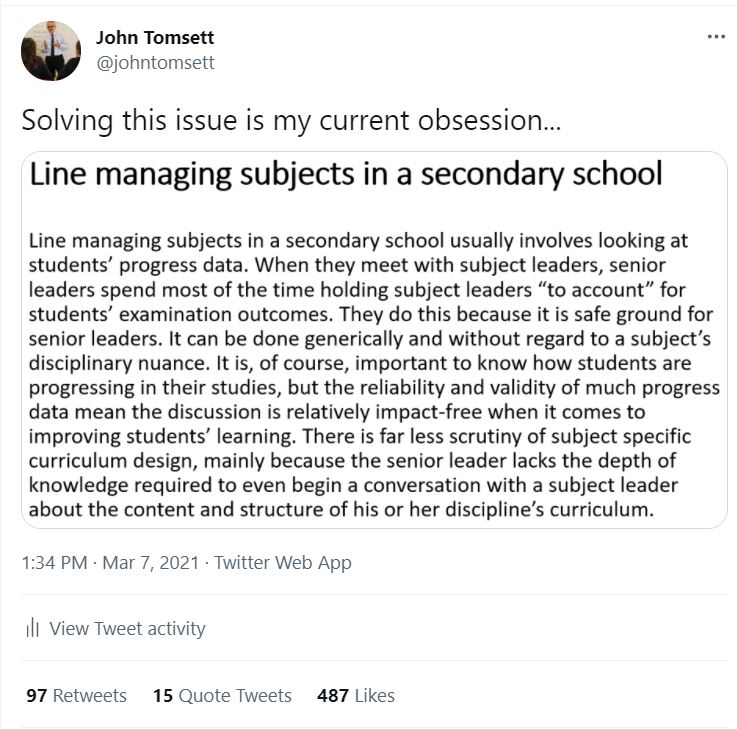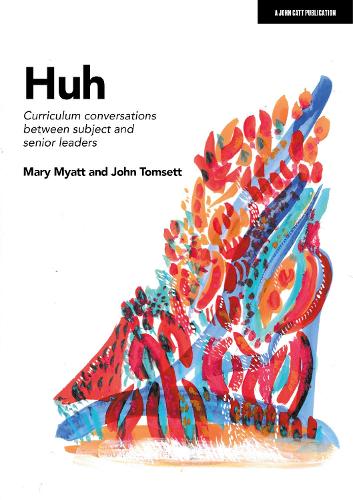A question was bugging me: “How on earth can senior leaders support subject leaders with developing the curriculum in subjects beyond the senior leaders' own subject specialisms?”
Consequently, a few months ago I published this tweet:

The response to the tweet was emphatic. I had clearly surfaced an important issue.
As the tweet suggests, some senior leaders use the language of holding subject leaders to account for the curriculum. That attitude is tinged with awful arrogance, because nine times out of ten you'll find that the senior leader who is line managing the subject is a novice in the subject.
I have a CSE grade 1 German qualification from 1980. I remember “Ich fahre mit dem Zug nach Brighton” (“I travel by train to Brighton”), that “gegen means “against” and gegenuber” means “opposite.” But that is about it. I line manage the Languages department, which is led by Cherry Bailey, a brilliant subject leader with a double honours degree from Cambridge in German and Russian.
I am the proverbial chocolate teapot in terms of helping this sparkling subject leader develop the Languages curriculum.
So Mary Myatt and I have been interviewing some remarkable subject leaders about curriculum development. We are really interested in the Key Stage 3 curriculum, where there is space to make nuanced decisions about what is taught when to whom. Mary has dubbed it the intellectual powerhouse of the school.
If you develop a rich and challenging Key Stage 3 curriculum it does two things. It provides a solid foundation for GCSEs, but, more importantly, it provides a powerful educational experience for all students, but especially for those young people who do not study some subjects beyond the age of 13/14. It is a genuine entitlement.
As Mary outlined in two recent blog posts (here and here), we have learnt a huge amount about the process of curriculum development and about the essence of the individual subjects themselves. Each subject chapter provides a starting point for further discussion of what we should teach students in our schools. We have collated the heart of each conversation in a new book called Huh: Curriculum conversations between subject and senior leaders. It will be published in September.
And this is what I feel now, having nearly completed this project:
- I wish I had made the effort to find out more about the curriculum 18 years ago, when I first became a headteacher, rather than in the weeks leading up to my retirement;
- Senior leaders have to approach this work with genuine humility and need to listen closely to subject experts;
- Senior leaders have a professional obligation to improve their own knowledge of the curriculum, guided by the subject experts;
- This is not about accountability, it is about professional development of all staff in a collaborative spirit…curriculum development really is teacher development.
In my next post I will illustrate how having a grade A at A level in mathematics is still not enough to understand the subject to a point where chocolate becomes china…

